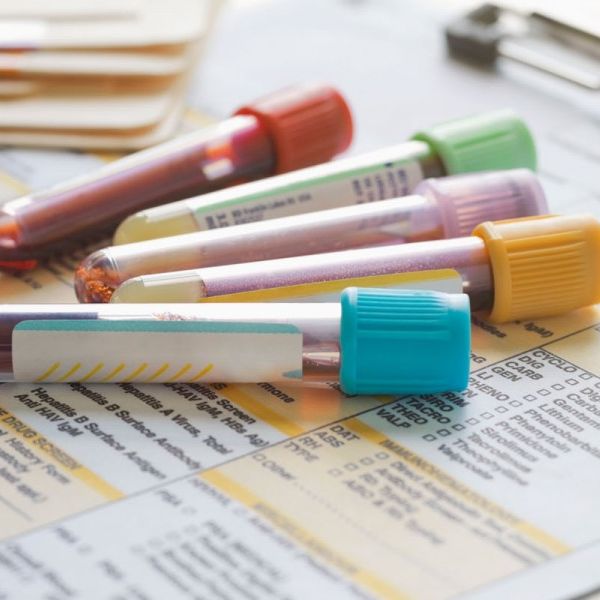The Complement Total, or CH50 Blood Test, primarily measures the traditional complement activation route while evaluating the entire activity of the complement system. In cases of the complex immunological disease, glomerulonephritis (inflammation of the kidney filters), and rheumatoid arthritis, a CH50 Blood Test is frequently suggested to assess the complement component insufficiency and complement activity. Moreover, it is used to assess a patient’s response to systemic lupus erythematosus (SLE) treatment and forecast flare-ups.
What is a CH50 test?
A screening test for total complement activity is called the CH50 test. Complement levels may be low in cryoglobulinemia, systemic lupus erythematosus, acute glomerulonephritis, chronic glomerulonephritis, rheumatoid arthritis, hemolytic anemias, liver disease, and chronic glomerulonephritis. Acute inflammatory disorders, leukemia, Hodgkin’s disease, sarcoma, and Behcet’s disease can all cause elevated complement. The effectiveness of the immune system’s usual method can be evaluated using the CH50 test. So, a total complement measurement, sometimes referred to as a full hemolytic complement or a CH50 test, evaluates the efficiency of the complement system. People with a family history of complement deficiency, symptoms of RA, or renal illness are typically suggested to get this test.
What do CH50 Test Results mean?
- The CH50 normal range shows that your complement protein levels are sufficient for your requirements.
- Low CH50 levels could indicate lupus, rheumatoid arthritis, nutritional deficiencies, infections, kidney illness, or other conditions that require additional investigation. To rule out the potential of lupus, for instance, you may independently test your C3 or C4 protein levels.
- If your CH50 levels are high, you might need additional testing for ulcerative colitis or malignancy (such as leukemia).
You can use the results of a CH50 lab test to determine the correct course of treatment, which may involve changing your lifestyle or taking medicine.
If your complement total (CH50) result is too low, what does it mean?
Complement levels may be low in cryoglobulinemia, systemic lupus erythematosus, acute glomerulonephritis, and chronic glomerulonephritis. It may also be deficient in diseases like rheumatoid arthritis, hemolytic anemias, graft rejection, liver disease, chronic glomerulonephritis, and chronic glomerulonephritis.
If your complement total (CH50) result is too high, what does it mean?
Increased complement levels could mean:
- Immune response in the acute phase
- Cancer
- Inflammatory colitis
- Chest pain (acute myocardial infarction)
- Sarcoidosis
- Acute inflammatory disorders, leukemia, Hodgkin’s disease, sarcoma, and Behcet’s disease are different conditions that may give a high complement.
How is the CH50 test conducted?
The CH50 test is a regular blood test, so there is no need to fast or undergo any preparation. Before the test, any medicine prescribed should be mentioned to the doctor or other healthcare provider.
A blood sample from the patient’s body is taken for the test. The patient’s upper arm is secured with an elastic band, and a blood sample is drawn from an arm vein using a needle. It can take two to three days to get the test results. The patient can have minor bruising or throbbing after the sample is taken. When the needle is inserted, there may be a little pain.
What does this test evaluate?
CH50 is most frequently used to monitor and evaluate a patient’s response to systemic lupus erythematosus (SLE) treatment, to check for complement component deficiency, and to assess complement activity in cases of complex immune disease, glomerulonephritis, rheumatoid arthritis, SBE, and cryoglobulinemia. The CH50 test mostly evaluates the classical route. Cancer or ulcerative colitis may be associated with elevated CH50 test levels. Cirrhosis, hepatitis, and systemic lupus erythematosus may all have lower CH50 values.
What Happens After the CH50 Blood Test is done?
The CH50 blood test cannot be used to make a specific diagnosis as it is intended to examine the integrity of the complement system. The doctor will be informed that the immune system has become active for some reason and that some sort of treatment is necessary for the underlying problem.
After treating the underlying issue, the CH50 blood test results will generally return to normal. That entails using anti-inflammatory drugs, antibiotics, or bettering one’s diet for frequent problems.
What are the limitations of the CH50 blood test?
The classical pathway’s integrity (i.e., the existence of complement components C1-C9) can be evaluated using CH50, although it is not a sensitive test for the fixation of complement in vivo. An average CH50 level indicates the existence of all the C1 through C9 components. However, even in a normal CH50, the absolute levels of specific complement elements (such as C3 or C4) might be significantly (between 50% and 80%) lower than usual without impacting CH50 activity.
Conclusion
The CH50 test is generally requested by patients with a family history of complement deficiency, symptoms of RA, kidney illness, myasthenia gravis, meningitis, or cryoglobulinemia, which is due to the presence of aberrant proteins in one’s blood.
Read more blog.



